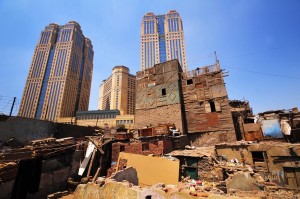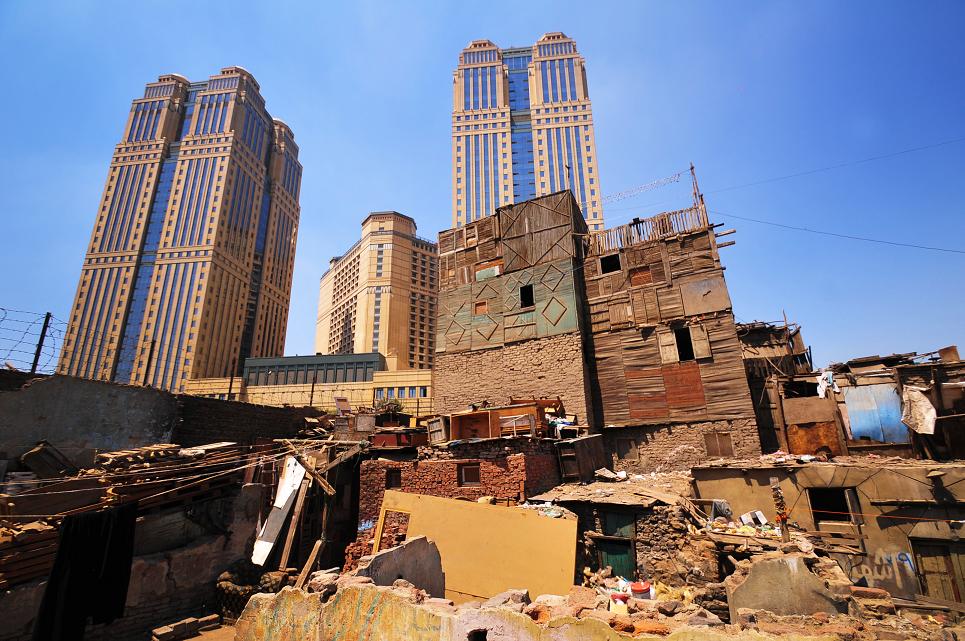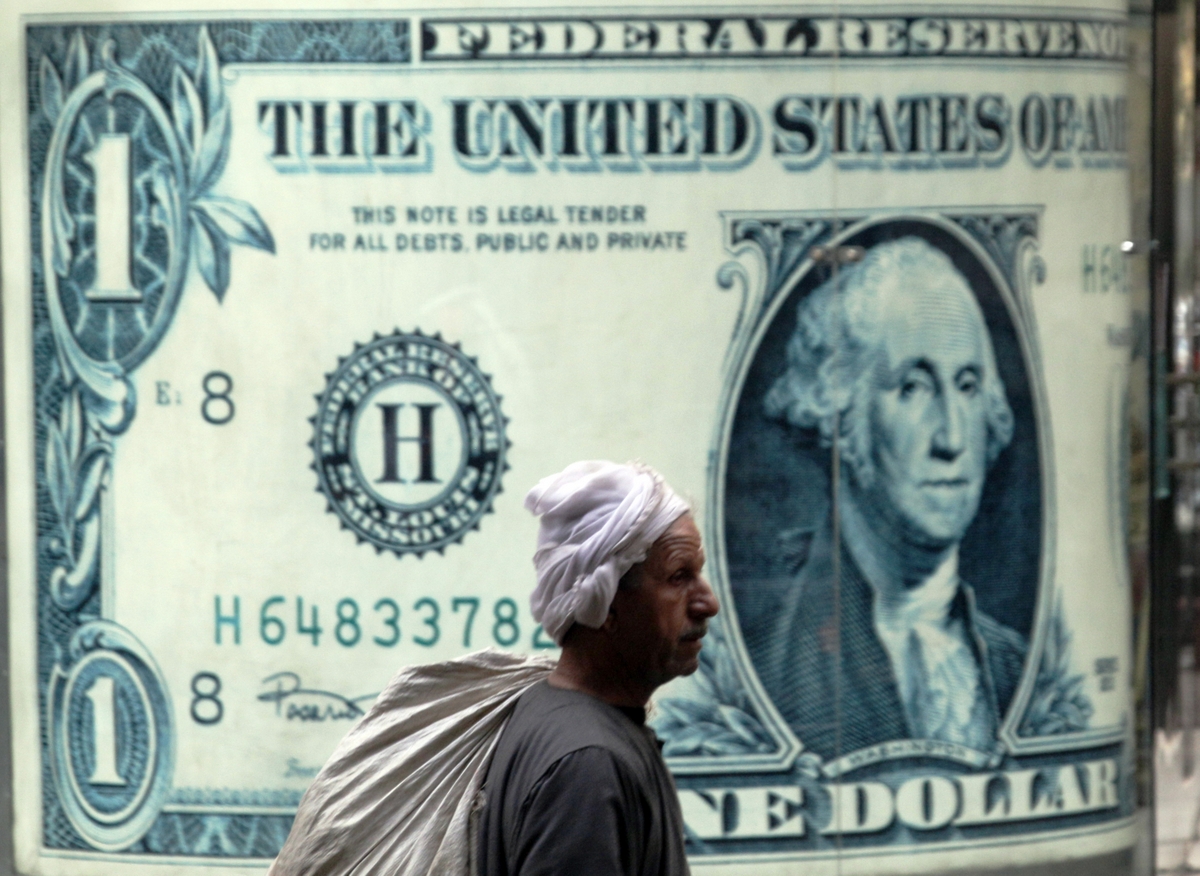
(Photo by Hassan Ibrahim)
The government is considering offering an international tender to establish an overall scheme for developing the Maspero area in Cairo under the supervision of the minister of housing, utilities and urban development, according to Prime Minister Ibrahim Mehleb.
Mehleb tasked the minister on Saturday with hiring a project manager to coordinate among various ministerial agencies and follow up on preparing a document to be signed by residents, the government, and investors within three months. The manager will also follow up the overall development scheme and the different stages of implementation.
Decisions to demolish buildings in the Maspero area were issued to residents recently as the buildings formed a threat to their lives.
The total population of the area before the 25 January Revolution was 35,000, but selling prices have skyrocketed due to Gulf investors owning the land.
The government is serious about developing the area in a way that does not cause harm to residents and is considering constructing approximately 64 buildings to accommodate 35,000 residents, according to an official within the Maspero Company.
The company was founded in accordance with Law 8 which pertains to investment incentives and guarantees as well as Law 159 which pertains to joint-stock companies and public funds contributions. However, the company reduced its capital following the revolution and decreasing development opportunities in areas behind the Maspero building on the Nile Corniche.
The source said that the National Bank of Egypt, Banque Misr, and Misr Insurance Company are shareholders in the company, but its role in the project President Abdel Fattah Al-Sisi hopes to revive remains unknown. The government is in the process of selecting one body to supervise the development process, and either the Ministry of Housing, Utilities and Urban Development will be chosen, according to the official.
Mehleb visited the Maspero area on Friday evening, saying that the government’s goal is to achieve social justice. His vision is for citizens to be able to find a place to live, obtain decent medical treatment, and provide their children with an education so that they can think for themselves and find jobs.
“We are currently counting the number of residents, and you all must help us so that anyone undeserving does not exploit the benefits of this project. We hope to set out a serious example for making information available and restoring Maspero’s ‘salt-of-the-earth’ morals,” said Mehleb.
“Egypt has changed. We welcome honest investors, but we also want Egyptians to benefit from investments in projects; these two things are not contradictory. If investors own lands, citizens have the right to utilise those lands,” he added.
He explained that no forced displacements will be issued, with the development process instead involving compromises that take Maspero residents into account.
“We have many challenges, ambitions, and a great trust in Egyptians. This is proved by our collecting EGP 64bn in only eight days as well as the road, land reclamation, and housing unit construction projects implemented by Egyptians all over Egypt,” Mehleb said.




